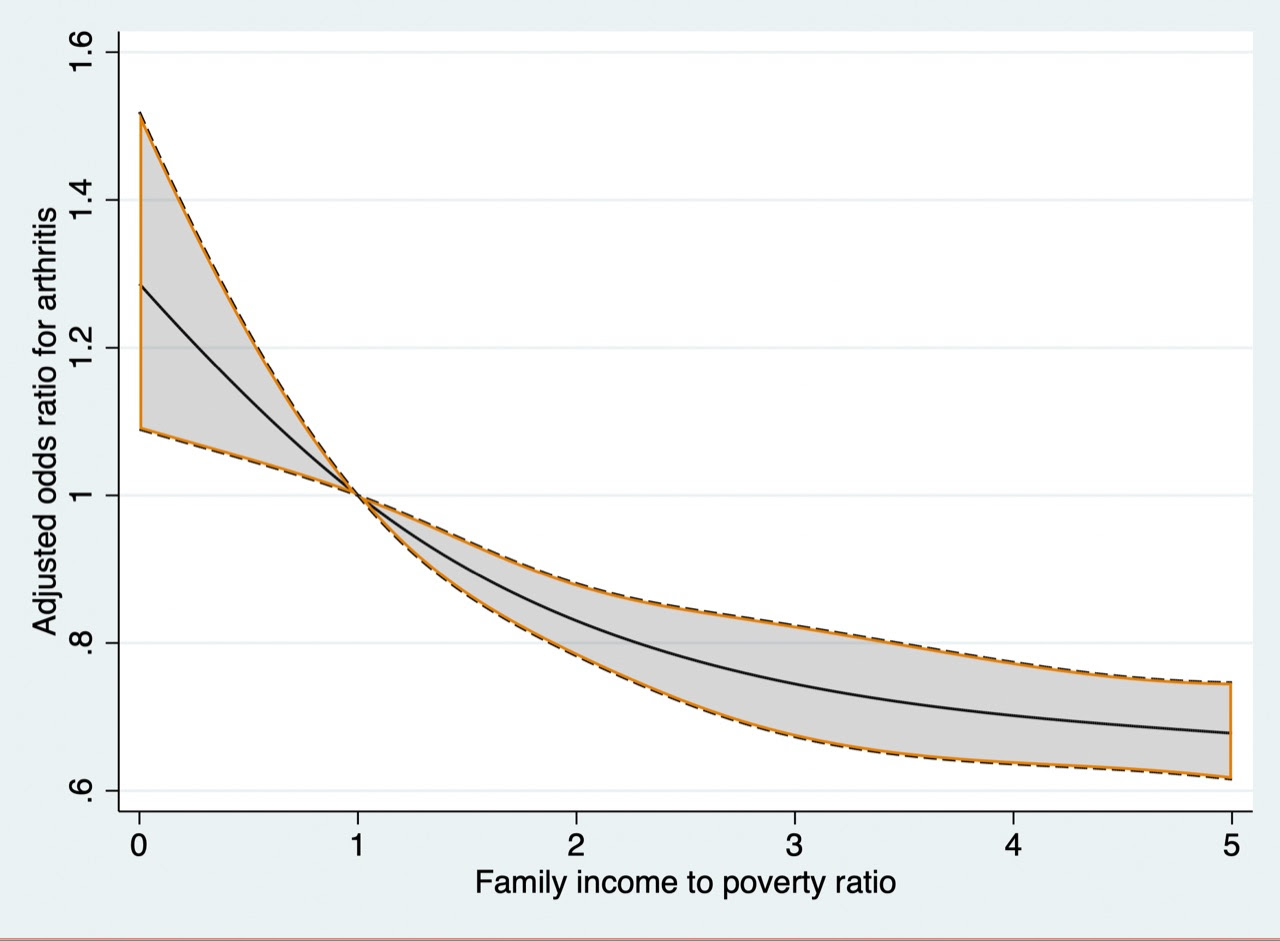Session Information
Date: Sunday, November 12, 2023
Title: (0145–0154) Epidemiology & Public Health – Interprofessional Poster
Session Type: Poster Session A
Session Time: 9:00AM-11:00AM
Background/Purpose: Lower socioeconomic status (SES) has been associated with worse health outcomes . Family income is a key component of SES. This study aimed to assess the association of family income with arthritis in the adult population in the United States.
Methods: Data from the National Health and Nutrition Examination Survey (NHANES) from 2005 to 2018 were analyzed. The family income to poverty ratio (FIPR) was used as a measure of SES. FIPR was calculated by dividing family (or individual) income by the poverty guidelines specific to the survey year. FIPR was categorized in 6 levels: FIPR < 1 (for the lowest income), 1-1.9,2-2.9,3-3.9,4-4.9, ≥5 (for highest income). Arthritis was defined by the participants’ response to the following question: “Has a doctor or other health professional ever told you that you had arthritis?”.
Results: The unadjusted prevalence of arthritis was 24.73% in the lowest income group (FIPR < 1). The prevalence of arthritis decreased with increasing FIPR, and was 23.87% in the highest income group (FIPR ≥ 5). After adjusting for age, race/ethnicity, and sex, the prevalence odds of arthritis were lower in participants with FIPR 1-1.9 (aOR, 95% CI: 0.79(0.70-0.88), p < 0.001); FIPR 2-2.9: (aOR, 95% CI: 0.66 (0.58-0.75), p < 0.001); FIPR 3-3.9 (aOR, 95% CI: 0.64 (0.55-0.75), p< 0.001); FIPR 4-4.9: (aOR 95% CI: 0.67 (0.57-0.77), p < 0.001), and FIPR ≥5: (aOR, 95% CI: 0.57 (0.50-0.65), p < 0.001).
Conclusion: These findings suggest that lower family income is associated with an increased prevalence of arthritis. Targeted interventions should be directed toward closing this socioeconomic gap which can potentially alleviate the disease burden.
To cite this abstract in AMA style:
Fayyaz R, Akhlaq A. Arthritis: A Wealth Gap [abstract]. Arthritis Rheumatol. 2023; 75 (suppl 9). https://acrabstracts.org/abstract/arthritis-a-wealth-gap/. Accessed .« Back to ACR Convergence 2023
ACR Meeting Abstracts - https://acrabstracts.org/abstract/arthritis-a-wealth-gap/

